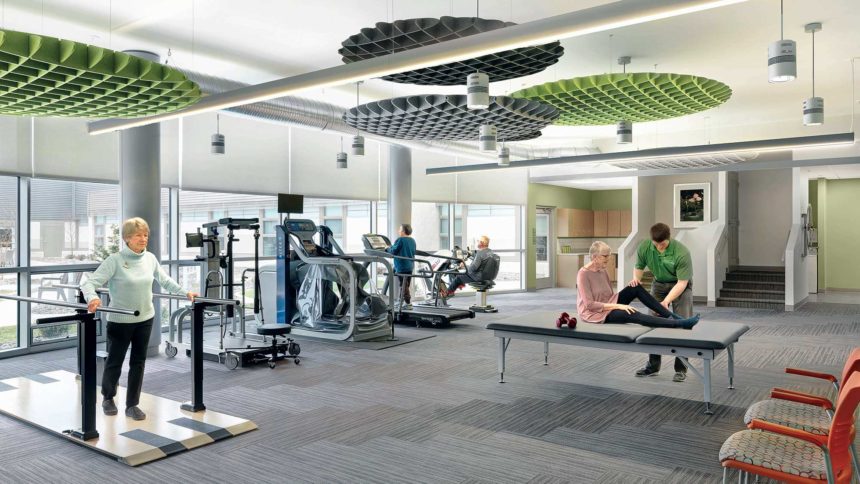
With its attention to detail and focus on a holistic approach to healing, Menno Haven Rehabilitation Center in Chambersburg, PA, has gained a prominent distinction in eldercare construction: It is the world’s first skilled nursing facility to be certified to the WELL Building Standard.
The WELL Building Standard is a performance-based certification system that combines best practices in design and construction with evidence-based scientific research. Built for $11.6 million, the 44-bed, 49,400 square-foot rehab center earned the prestigious distinction based on seven categories of building performance — Air, Water, Light, Nourishment, Fitness, Comfort and Mind — and achieved a Gold rating in the process.
“It was exciting to bring the WELL Building Standard to life within a skilled nursing environment to serve Menno Haven’s mission of nurturing the human spirit,” says Jay Weingarten, partner with RDG Planning and Design. “This center is an exemplary model of how we can design environments that foster healing and emphasizes health and well-being.”
The building also has received plaudits from the eldercare industry for its innovative design. It was twice recognized in the Environments for Aging Design Showcase and by the Society for the Advancement of Gerontological Environments.
Opened in 2018, the Menno Haven rehab center is in the first phase of a five-year renovation and upgrade. The rehab center project began in 2017, around the time that the WELL Building Standard was in its infancy, Weingarten says.
“From the onset, Menno Haven had a goal to create an environment that focused on wellness, and WELL provided a research-based avenue for implementing this vision,” he says. “RDG’s design emphasizes health and wellness using biophilic [connecting occupants to nature] design elements, advanced technology and continued connections to the community.”
Speaking of community, the rehabilitation center integrates a number of outpatient services, such as the on-site Summit Health Clinic that serves Menno Health residents as well as the general public. The building’s culinary center of excellence has enhanced food quality for the entire Menno Haven community, significantly increasing the use of raw ingredients and reducing the consumption of processed foods.
The center’s design and purpose also serve as an important marketing tool in communicating with the public at large, Weingarten says.
“Because guests are exposed to the wellness messaging, they experience the value of it and take that message with them when they return home,” he says.



